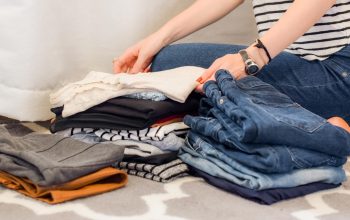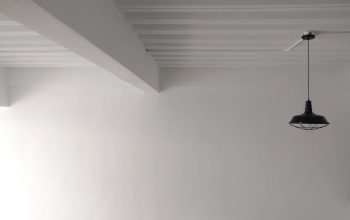Home Organization and Decluttering are not just physical tasks but transformative practices that significantly improve emotional well-being. By systematically organizing and reducing clutter, individuals can create a structured environment that promotes mindfulness and clarity, leading to intentional living and a sense of control. This process encourages evaluating possessions for their relevance to current life, allowing for the release of items that no longer serve a purpose or bring joy, while honoring their sentimental value. The benefits extend beyond cleanliness; they include emotional freedom, peace of mind, and personal growth. Regularly maintaining an organized home through consistent decluttering routines and intentional acquisition can prevent clutter buildup, maintain tranquility, and reflect a calm and focused mental state. Adopting a 'one in, one out' principle and utilizing organized systems helps sustain the benefits of Home Organization and Decluttering, ensuring that one's living space harmoniously supports mental and emotional health.
Decluttering is more than a tidying trend; it’s a gateway to emotional freedom. In our homes, we often accumulate items that hold onto our past experiences, shaping an environment that can either uplift or weigh us down. This article explores the profound impact of home organization and decluttering on mental clarity and emotional well-being. We delve into strategies for identifying emotional attachments, offering guidance to sort through belongings and release the weight of the past. From there, we discuss implementing organizational systems that not only neatly arrange our physical spaces but also cultivate a serene state of mind. Finally, we provide actionable tips for maintaining this harmonious balance between a clutter-free home and an emotionally unburdened life. Join us as we journey through the intersection of home organization and emotional liberation.
- Unburdened Spaces, Unburdened Minds: The Connection Between Emotional Freedom and Home Organization
- Identifying Emotional Attachments: How to Sort Through Your Belongings and Let Go of the Past
- Strategic Decluttering: Methods for Physical and Emotional Releases
- Organizing for Mental Clarity: Creating Systems That Promote Emotional Well-being
- Maintaining the Decluttered State: Tips for Keeping Your Home—and Your Emotional Peace—Intact
Unburdened Spaces, Unburdened Minds: The Connection Between Emotional Freedom and Home Organization
Decluttering one’s home can have a profound impact on emotional well-being, creating an environment where freedom from clutter mirrors mental clarity and peace. The connection between home organization and emotional freedom is more than superficial; it is rooted in the psychological principles that govern our interactions with our living spaces. A cluttered home can be a physical manifestation of a cluttered mind, where each item representing a decision deferred, a memory unexamined, or a responsibility unattended. By engaging in the process of decluttering, individuals confront these items, making intentional choices that often lead to a sense of empowerment and control over their surroundings. This act of curation not only simplifies the home environment but also encourages mindfulness and reflection, fostering an atmosphere where emotional freedom can flourish. As each unnecessary object is removed, the mental space it occupied becomes available for new ideas, creativity, and personal growth. The result is a home that reflects a state of being unburdened, both physically and mentally, allowing its inhabitants to navigate life’s complexities with greater ease and resilience. Home Organization and Decluttering are thus not merely organizational strategies but transformative practices that promote an emotional freedom that radiates from a well-ordered living space into all aspects of life.
Identifying Emotional Attachments: How to Sort Through Your Belongings and Let Go of the Past
Decluttering one’s physical space can have a profound impact on emotional well-being, often providing a pathway to greater freedom and peace of mind. The process of Home Organization and Decluttering isn’t merely about sorting through possessions; it’s an opportunity to assess and let go of past emotional attachments. To identify these connections, start by examining each item without judgment. Consider its significance in your life now, not in the past when it was acquired. If an object holds sentimental value but doesn’t serve a current purpose or bring joy, acknowledge the emotions tied to it and make a conscious decision to let go if it no longer aligns with your present life. This act of release is not about discarding memories but about embracing a future where you are less encumbered by the weight of the past. As you sort through your belongings, be mindful of the emotions that arise; they can guide you in determining what to keep and what to let go of. By focusing on Home Organization and Decluttering, you create a living space that not only feels more open but also allows for emotional freedom to flourish. This is a deliberate practice of self-care, a way to nurture a home environment that supports your current life and aspirations.
Strategic Decluttering: Methods for Physical and Emotional Releases
Engaging in strategic decluttering can lead to profound physical and emotional releases, offering a pathway to enhanced home organization and an improved sense of well-being. The process begins with a mindful assessment of one’s living space, identifying items that no longer serve a purpose or bring joy. By categorizing belongings and reflecting on their significance, individuals can make informed decisions about what to keep, donate, or discard. This physical decluttering acts as a catalyst for emotional release, as it often prompts a deeper examination of personal habits and attachments.
To effectively combine home organization with emotional decluttering, it’s beneficial to approach the task with a clear intention. One method is the ‘One In, One Out’ rule, which encourages bringing new items into the home only after letting go of something equivalent. This tactic prevents accumulation and forces a pause for contemplation, making each acquisition more deliberate and reducing clutter-induced stress. Additionally, employing organization systems like labeled containers or color-coded labels can create visual harmony, which in turn can contribute to a calmer emotional state. By systematically addressing both the tangible and intangable elements of one’s environment, individuals can achieve a state of decluttered freedom that permeates their physical space and their emotional landscape.
Organizing for Mental Clarity: Creating Systems That Promote Emotional Well-being
Engaging in home organization and decluttering is a powerful practice that extends beyond mere physical tidying; it also offers mental clarity and promotes emotional well-being. By systematically organizing living spaces, individuals can create an environment that reflects calmness and order, which in turn can influence their mental state for the better. The act of sorting through belongings forces a person to make conscious decisions about what adds value to their life, leading to a more intentional living space. This process not only simplifies daily routines but also helps to reduce the mental clutter that can come from excess stuff. Moreover, maintaining an organized home can decrease stress levels and provide a safe haven for relaxation and reflection, allowing emotional freedom to flourish.
To further enhance emotional well-being through decluttering, it’s beneficial to implement systems that maintain order over time. This could involve designating specific areas for certain activities or items, creating clear storage solutions that are easy to use, and establishing routines that incorporate regular tidying sessions. These systems not only help in keeping the home organized but also contribute to a disciplined mindset. The discipline of maintaining order at home can translate into other aspects of life, fostering a sense of control and empowerment. By making home organization and decluttering part of one’s routine, individuals can achieve a more harmonious living environment that supports their mental and emotional health.
Maintaining the Decluttered State: Tips for Keeping Your Home—and Your Emotional Peace—Intact
Engaging in home organization and decluttering can significantly contribute to emotional tranquility, creating a harmonious living environment that reflects your mental state. To maintain this state of peace and order, it’s essential to establish routines that promote sustained organization. Begin by allocating specific times each week for tidying up shared spaces like the living room and kitchen. This consistent effort ensures clutter doesn’t accumulate and allows you to periodically reassess what items truly serve a purpose in your life.
Another key strategy for preserving both home organization and emotional freedom is to make intentional decisions about new items brought into your space. Ask yourself if each new purchase aligns with your lifestyle and contributes positively to your environment. The ‘one in, one out’ rule can be a useful guideline; for every item you bring into your home, consider removing something that no longer adds value to your daily life. This approach not only keeps your home organized but also encourages mindful consumption, fostering a sense of contentment with what you have and promoting emotional clarity.
Decluttering one’s home not only simplifies living spaces but also paves the way for emotional freedom. The interplay between a well-organized environment and a clear mind is profound, as tackling physical clutter can significantly contribute to mental clarity and overall well-being. By identifying and releasing emotional attachments, individuals can find solace in the simplicity and intentionality of their surroundings. The strategies outlined in this article for decluttering are not mere home organization tips; they are steps toward liberating oneself from the weight of unnecessary belongings and the burdens they may carry. By establishing systems that promote emotional health, maintaining a decluttered state becomes a sustainable practice, ensuring that both your home and your peace of mind remain uncluttered. Embrace the transformative power of decluttering as a journey toward greater freedom and a more intentional lifestyle.



